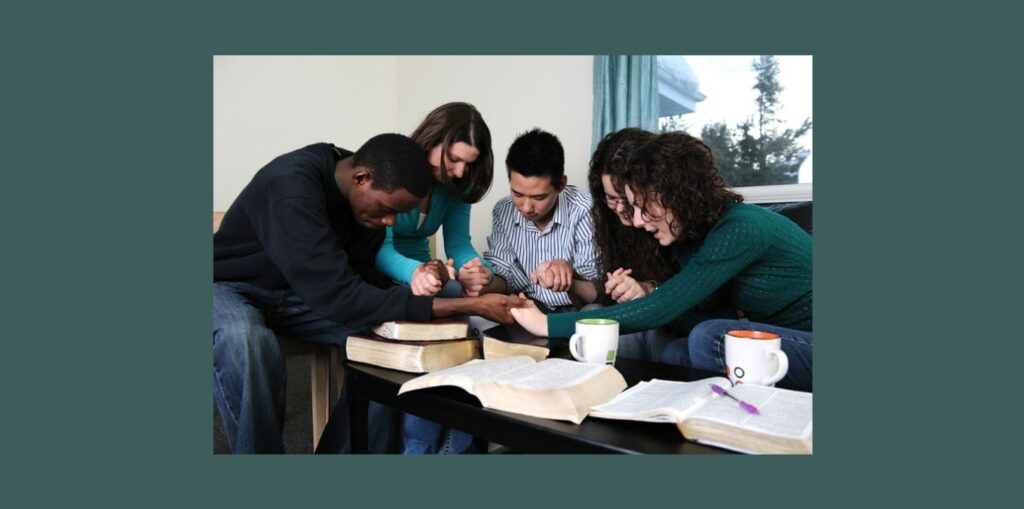
Why Christians must exercise their right to vote
By: Jenna Ellis, originally published November 1, 2024, American Family News
Voting isn’t merely a civic action; for those of us who follow Jesus, it’s a spiritual responsibility. It’s not an optional part of our faith, but a duty. It’s our opportunity to stand for godly principles in a way that best reflects our beliefs and our values.
The responsibility of voting in our American Republic is not only a civic duty but, for Christians, also a spiritual act rooted in scripture and principle. Throughout the Bible, we see a call to engage with the world and make choices that reflect God’s justice, mercy, and truth. To avoid this responsibility is to miss an opportunity to live out our faith in practical ways that directly impact our communities and society.
As the Rev. Billy Graham once urged: “Christians cannot ignore politics, because if we do, we are ignoring one of the major areas in which God’s people are to influence the secular society.”
This influence is achieved, in part, through the faithful exercise of the right to vote.
Biblical foundations for voting
The Bible, while not directly discussing voting, offers principles that guide believers toward active participation in societal governance. In Jeremiah 29:7, God tells the exiled Israelites to “seek the peace and prosperity of the city to which I have carried you into exile. Pray to the Lord for it, because if it prospers, you too will prosper.”
Christians today can apply this principle by working for the good of the communities and nations they inhabit, making choices that promote justice and good, while restraining evil and godlessness. Voting is one way to seek the welfare of our society, as our choices can shape policies that impact the vulnerable, uphold morality, and pursue peace.
The teachings of Jesus reinforce the importance of stewardship and responsibility. In the Parable of the Talents (Matthew 25:14-30), Jesus praises the servants who use their resources wisely – a reminder that we are accountable for what we have been given.
The right to vote is a resource that allows Christians to influence policies on issues like life, national sovereignty, security, liberty, religious freedom, and human flourishing. Not exercising this privilege could be seen as burying a talent, wasting an opportunity to act in a way that reflects the values of Christ’s kingdom.
The example of evangelical leaders
Many evangelical leaders have echoed the call for Christians to engage in the political process. Billy Graham famously noted: “It is the duty of every individual Christian at election time to study the issues, study the candidates, then go to the polls and vote.” His words emphasize that voting is not about advancing a particular agenda but discerning how each candidate and policy aligns with God’s will as revealed through scripture and prayerful consideration.
Similarly, Pastor Jack Hibbs, the senior pastor of Calvary Chapel Chino Hills, has been a vocal proponent of Christian engagement in the public sphere. Hibbs has emphasized that Christians cannot remain silent or indifferent in the face of issues affecting our society. He has said: “To not vote is to vote. If we do not take our responsibility seriously, we are allowing others to make decisions that impact the future of our children and our communities.”
For Hibbs, Christians are called to defend biblical values and must use their right to vote as an expression of their faith.
Practical implications of voting
Voting offers Christians the opportunity to voice their convictions on issues that impact society’s moral and ethical fabric. The prophet Micah’s call to “act justly, love mercy, and walk humbly with your God” (Micah 6:8) can guide Christians as we evaluate candidates and ballot issues. Are these policies and leaders aligned with justice? What support or opposition best reflects a moral and upright society? Such questions align Christian values with the responsibility of voting, urging believers to make the best choices among our options that honor God’s heart for humanity.
Abstaining from voting may feel like an act of withdrawal, but as Paul reminds us in Romans 13:1: “Let everyone be subject to the governing authorities, for there is no authority except that which God has established.”
God works through earthly governance … and by participating in elections, Christians engage in the governance structure God has allowed.
For Christians, voting is not merely a civic action; it is a spiritual responsibility to seek the welfare of our society, to act justly, and to be salt and light in the world. As Billy Graham, Pastor Jack Hibbs, and other pastors and contenders for the faith have reminded us, this is not an optional part of our faith but a duty. The call to vote is, therefore, a call to stand for godly principles in a way that best reflects our beliefs and our values.
Jenna Ellis served as the senior legal adviser and personal counsel to the 45th president of the United States. She hosts “Jenna Ellis in the Morning” weekday mornings on American Family Radio, as well as the podcast “On Demand with Jenna Ellis.”
